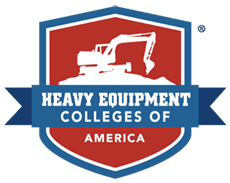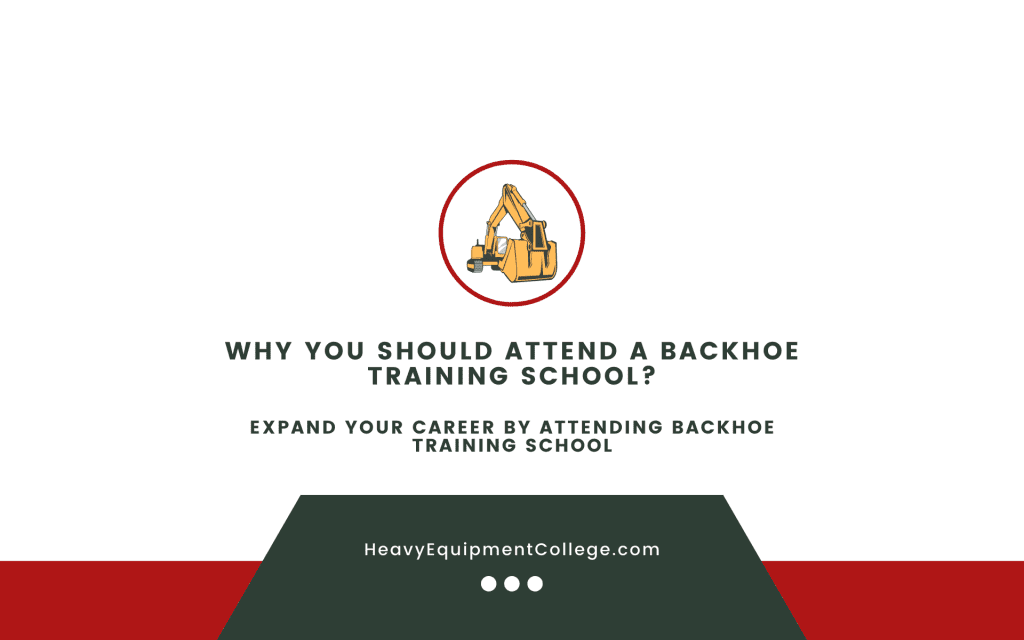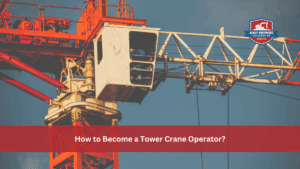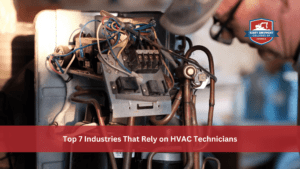The backhoe is one of the most adaptable pieces of heavy machinery. From farming and landscaping to building roads and houses, this machinery is used for a variety of jobs. Knowing how to operate a backhoe opens up endless career opportunities and makes you an invaluable asset on job sites.
Read on to learn about backhoes and the opportunities that await certified operators, and also the reasons why you should attend Backhoe training school.
Table of Contents
All About Backhoes
A backhoe gets its name from how the bucket moves the earth. Once it scoops, it moves the earth back toward the machine.
Similar to excavators, backhoes are smaller and can handle mid-size construction projects better. Though they can’t rotate as far as an excavator, the backhoe has several attachment options for versatility.
Backhoe Parts
What are the Backhoe Loader Parts Called and what are their functions?
Most backhoes are composed of similar parts: a tractor, an excavating attachment at the rear, and a front loader attachment, and an operator cab.
Backhoe Parts and their Functions
- Tractor Base: The tractor is mounted on wheels for ease of movement on uneven terrain. The base supports the bucket.
- Bucket: When the tractor moves forward, the front bucket is lowered and scoops materials. The lift arms, supported by the tractor frame, raise and lower the bucket. The rear excavating attachment, composed of a boom, dipper arm, and bucket, operates by lowering the bucket down and into the ground. By moving the boom up and the dipper arm in toward the tractor, the bucket is filled with material.
- Front Loader Attachment: The front loader attachment is mounted at the front of the machine and can and can be used to move loads and also accomplish heavy lifting tasks.
- Operator Cab: The seat in the cab where the operator sits can swivel 180 degrees, allowing the operator access to the backhoe controls.
How To Become a Heavy Equipment Operator?
The Basics of Operating a Backhoe
How to operate a Backhoe Machine and it's controls?
A backhoe should only be operated by a licensed and properly trained individual.
- Get a Feel for the Controls
It may take a while to get used to how the machine operates. So before you begin operating, locate all the controls and get a feel for them. Over time, you’ll feel more comfortable with how everything is situated, and how the movement of the controls is directly related to the movement of the operational components. - Safety Checks
Following proper safety protocols is what keeps a job site working smoothly and efficiently. Before digging, inspect the backhoe for any malfunctions. Additionally, inspect the work site for any underground obstructions like utilities or pipes. Before transporting, ensure the swing lock is secure and the boom is locked.
When using, remember to honk before moving the backhoe to alert anyone nearby of your movements. And always be aware of people in your surroundings. Never stand or walk under elevated components such as the front bucket or excavating arms in the rear.
- Start Digging
Once you’re comfortable and have ensured safety, you can begin doing the job at hand. Move the boom up and the dipper arm in toward the tractor to fill the bucket. - Get Lifting
To lift the bucket out of the ground, keep the bucket curled and raise the boom. Be aware of the weight of the bucket to prevent overfilling and losing control of the load. - Unload
Once the load has been lifted out of the ground, you can unload it in a specified location. Move the bucket to where you’re going to unload and dump the contents.
How To Get a Backhoe License?
Backhoe training courses typically include a combination of classroom learning with hands-on experience.
A backhoe certification course includes some of the following topics:
- Safety standards
- Backhoe fundamentals
- How to spot hazards
- Maintenance
- Inspections before use
- Operating techniques
Once you pass the written test, you’ll be a licensed operator. You can find backhoe training courses at heavy equipment operator schools.
Check our our Recent Blogs Here:
Opportunities After Certification
What are the Opportunities After Backhoe Certification?
Backhoe operators are essential for jobs in:
- Construction
- Infrastructure
- Roadwork
- Mining
- Timber
- Farming
Build the Foundation of Your Career at HEC
Get licensed in as little as three weeks! HEC offers an extensive backhoe training program that provides tools to be successful in your career. Heavy Equipment colleges of America even assists throughout the job search process.
Start your journey today. Learn fundamentals to build your career at one of HEC’s four locations. Call (888) 414-0285 to enroll or learn more about HEC programs.






